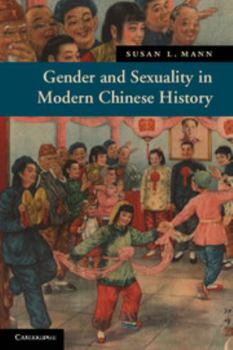Gender and Sexuality in Modern Chinese History
(Part of the New Approaches to Asian History Series)
Select Format
Select Condition 
Book Overview
Gender and sexuality have been neglected topics in the history of Chinese civilization, despite the fact that philosophers, writers, parents, doctors, and ordinary people of all descriptions have left reams of historical evidence on the subject. Moreover, China's late imperial government was arguably more concerned about gender and sexuality among its subjects than any other pre-modern state. Sexual desire and sexual activity were viewed as innate human needs, essential to bodily health and well-being, and universal marriage and reproduction served the state by supplying tax-paying subjects, duly bombarded with propaganda about family values. How did these and other late imperial legacies shape twentieth-century notions of gender and sexuality in modern China? In this wonderfully written and enthralling book, Susan Mann answers that question by focusing in turn on state policy, ideas about the physical body, and notions of sexuality and difference in China's recent history, from medicine to the theater to the gay bar; from law to art and sports. More broadly, the book shows how changes in attitudes toward sex and gender in China during the twentieth century have cast a new light on the process of becoming modern, while simultaneously challenging the universalizing assumptions of Western modernity.
Format:Paperback
Language:English
ISBN:052168370X
ISBN13:9780521683708
Release Date:September 2011
Publisher:Cambridge University Press
Length:256 Pages
Weight:0.80 lbs.
Dimensions:0.6" x 6.0" x 8.9"
Customer Reviews
0 rating





